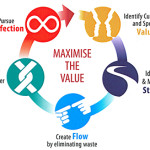
Lean Thinking For Healthcare
Lean Thinking For Healthcare With the advent of the highly controversial and experimental Affordable Care Act physicians and healthcare organizations are looking for innovative ways
Home » Learning Series

Lean Thinking For Healthcare With the advent of the highly controversial and experimental Affordable Care Act physicians and healthcare organizations are looking for innovative ways
Do you know how the ACA impacts hospitals? Visit BHM Healthcare Solutions‘ blog to learn more about the ACA impacts on hospitals and much more…
The ACA Is Hitting Hospitals Hard ACA is hitting hospitals hard when it comes to the Affordable Care Act, also referred to as Obamacare or
So you know the major reasons why hospitals are losing money? Follow BHM Healthcare Solutions to stay updated on the reasons hospitals are losing money
In our previous post we discussed how we were going to take a step back and cover the basics of EMR and Meaningful Use. Last
Are Accountable Care Organizations Failing? Are Accountable Care Organizations failing? By definition, an Accountable Care Organization (ACO) is a type of healthcare organization that is characterized by
We have been discussing Meaningful Use for some time now, and several of our readers have been asking for us to go back to the basics to explain in broad terms what it is, how it impacts healthcare, and what are the top things that individuals and organizations need to know. In response to this request, we are pleased to present this post where we will go back and explain the basics, EHR Meaningful Use 101 so to speak. We hope that you find this helpful!
From the Affordable Care Act (ACA) to state wide reform initiatives, the pressure is on for healthcare providers to offer maximum quality healthcare to increasing patient populations at a more affordable rate. Couple this with pressure to integrate healthcare, increase communication, ensure privacy, and reduce risk and you have a pressure cooker of factors that are driving Healthcare providers to find fast, sustainable solutions. One of those solutions is the application of predictive modeling.
The Centers for Medicare & Medicaid Services (CMS) has established a Medicare Shared Savings Program to facilitate coordination and cooperation among providers to improve the quality of care for Medicare Fee-For-Service beneficiaries and reduce unnecessary costs.

When we think of first aid we may think of appropriate responses to physical injuries, like appropriate wound care, head trauma stabilization, or CPR. Most